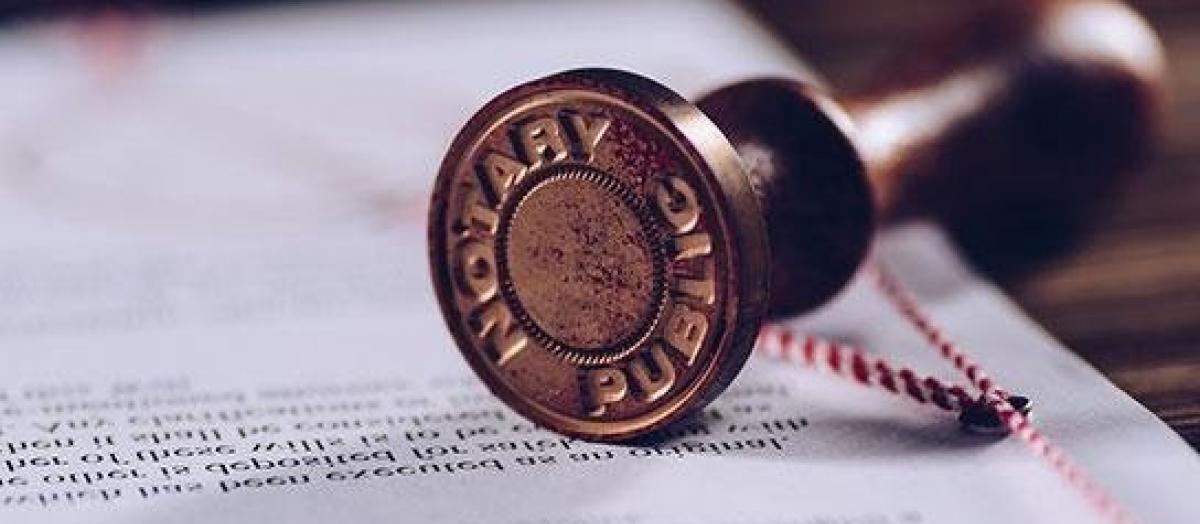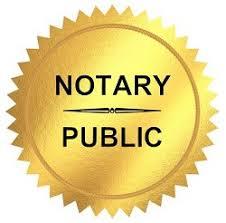Recognizing Apostille: Simplifying International Document Legalization
Recognizing Apostille: Simplifying International Document Legalization
Blog Article
Debunking Notarial Work: Streamlining the Function and Relevance of Notaries
In the elaborate internet of lawful documents and verification, notaries stand as pillars of assurance and credibility. Their duty, typically shrouded in secret for numerous, lugs considerable weight in ensuring the credibility and integrity of critical papers. As guardians of legality and fact, notaries play a pivotal part in our society, yet their work is not constantly totally understood. By unwinding the complexities surrounding notarial methods and dropping light on the importance of their acts, a more clear understanding emerges of the vital role notaries play in upholding the textile of contractual and legal agreements.
The Background of Notarial Work
The background of notarial work dates back to ancient worlds, where scribes played a crucial role in taping essential info and authenticating files. This led to the advancement of notaries, individuals assigned by the state to act as impartial witnesses in legal matters.
During the Center Ages, notaries obtained prominence in Europe, with their functions expanding to consist of composing lawful documents, accrediting trademarks, and protecting documents. The surge of international trade even more stressed the value of notarial work in confirming agreements and contracts throughout boundaries.
In the contemporary age, notaries remain to play an essential duty in lawful and organization purchases by verifying identities, verifying the credibility of records, and preventing fraud. Their role in licensing the legitimacy of arrangements includes a layer of protection and count on to the ever-evolving landscape of commerce and legislation.

Obligations and Responsibilities of Notaries
Notaries play an important role in validating the authenticity of papers and the identification of notaries. One of their key responsibilities is to witness the finalizing of important documents, such as wills, acts, and contracts, to ensure that all parties are getting in into agreements purposefully and voluntarily.
Moreover, notaries are tasked with carrying out affirmations and vows, which are essential in legal process and the implementation of affidavits. They accredit duplicates of initial records, providing assurance to organizations that the copies hold true reproductions of the originals. Notaries have to keep exact documents of all deals they look after to ensure transparency and accountability. In general, the tasks and obligations of notaries are crucial in safeguarding the integrity and legitimacy of different papers and deals.
Notarial Certificates and Signatures
Exemplifying meticulous focus to information, notarial certificates and signatures function as necessary elements in verifying the authenticity of lawful files. Notarial certificates typically have vital details such as the date of notarization, the names of the signatures, a description of the file, and the notary's main seal. These certifications offer a clear record of the notarial act, making certain that the paper can be easily recognized and traced back to the notary that managed the process.
Trademarks play a crucial role in notarial job, as they symbolize the agreement and authorization of the celebrations entailed. Notaries very carefully witness the signing of papers to verify the identification of the signatories and verify that they are signing of their own free choice. By attaching their main seal and signature to the record, notaries accredit that the essential treatments have actually been complied with and that the document is enforceable and legitimate.
In significance, notarial certifications and trademarks are the hallmark of credibility in lawful transactions, supplying assurance to all parties included that the documents are genuine and binding.
Relevance of Notarial Acts

Notarization Refine Described
Clarifying the registration procedure gives quality on the essential steps involved in verifying legal papers. The registration process typically begins with the private offering the paper to a notary public. The notary then validates the endorser's identity via appropriate identification approaches. Once the identification is confirmed, the notary makes certain that the specific authorizing the file does so willingly and without any blog threat.

Final Thought

Notarial certifications typically consist of important details such as the date of registration, the names of the signatures, a description of the document, and the notary's main seal. These certificates give a clear record of the notarial act, making sure that the paper can be conveniently identified and traced back to the notary who looked after the procedure.
By affixing their official seal and signature to the document, notaries certify that the required procedures have been complied with and that the record is enforceable and legitimate.
By verifying the identity of the signatories, confirming their willingness to enter into the agreement, and certifying the date and location of the signing, notaries play an important function in maintaining the credibility of legal files.After the file is signed, the notary will affix their main seal or stamp onto the record.
Report this page